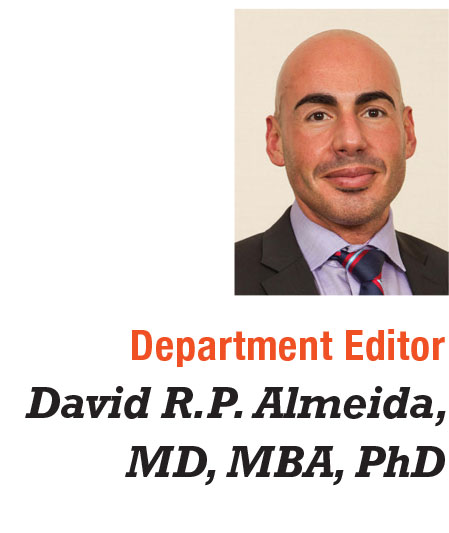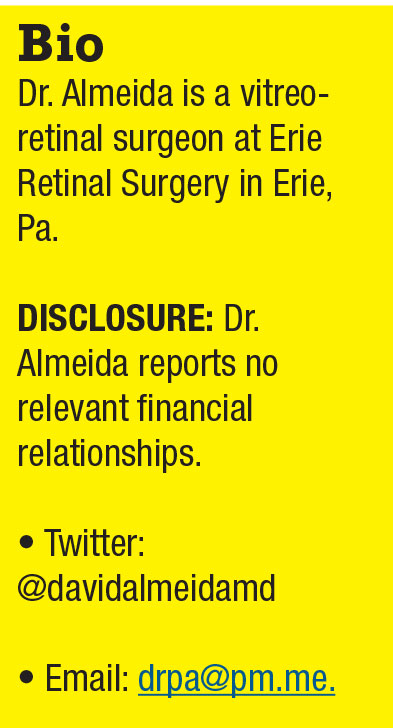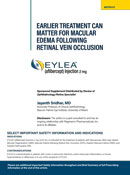 |
 |
When we initially discussed this column, we had a general overview of the topics we wanted to cover, hopeful that they would be useful for both those just finding their social media identity to the more advanced users. This column’s topic is not one we initially planned, but is arguably one of more significance than any other we’ll explicate.
On May 25, George Floyd, a 46-year-old African American man, was killed when a Minneapolis police officer pressed a knee against his neck for more than eight minutes. Public outrage over his death quickly spread, unleashing protests of racial injustice across the United States and around the world since. A question I’ve received dozens of times goes something like this: Should I use my professional social media profile to comment on racial injustice or should I continue to focus on retina and medical topics?
What not to do
On the surface, this question may seem innocent and the answer may appear to align with guidance from the American College of Physicians and Federation of State Medical Boards: that physicians should separate their professional and personal identities to manage patient-physician boundaries online.1
However, today this won’t pass muster. Apathy is not an option. Professional silence is tantamount to enablement. To quote Boston University psychiatrist Michelle Durham, MD, MPH, “Professional silence in the face of social injustice is wrong ... To try to avoid the political fray through silence is impossible ... Either engage or assist the harm.” 2
Where do we stand?
To date, numerous medical societies have used social media to speak up. The American Academy of Ophthalmology has joined with other medical societies to advocate using our positive voice to speak out against injustice. I believe we all want to be part of a professional society that doesn’t tolerate hate crimes and discrimination.
It’s appropriate for the public space
I’ve stated previously that you need to separate your professional platform from your personal views so as to avoid the dangerous pitfalls of patient privacy violation or unintended bias. This does not change.
However, one must comprehend that, as Matthew DeCamp, MD, PhD, and colleagues summarized in a recent JAMA editorial, a simpler approach for issues of social importance is one that asks physicians, not whether potential social media content is personal or professional, but whether it’s appropriate for a public space.3
Issues of racial injustice are appropriate for the public space. Moreover, public discourse is exactly what’s needed to ferment sentiment into action that translates into progress.
Ultimately, as physicians, our central goal is to care for others. We must act upon factors that threaten health, whether pathophysiological or societal. Racism, violence and prejudice cannot be tolerated, and remaining silent, falsely protecting oneself in a cloak of apathy, will not suffice.
So, I urge you to use your social medial profile to speak. Do it eloquently. Do it forcefully. Do it directly. Avoid derogatory remarks. Avoid insults. Avoid provocations—but realize that if you believe your social media is part of your voice, you must speak up because apathy is not an option. RS
REFERENCES
1. Farnan JM, Snyder Sulmasy L, Worster BK, Chaudhry HJ, Rhyne JA, Arora VM. Patient and public relationships: Policy statement from the American College of Physicians and the Federation of State Medical Boards. Ann Intern Med. 2013;158:620–627.
2. Neporent L. Hashtag medicine: Medical Twitter confronts racism head on. Medscape Medical News. June 1, 2020. https://www.medscape.com/viewarticle/931550 Accessed June 13, 2020.
3. DeCamp M, Koenig TW, Chisolm MS. Social media and physicians’ online identity crisis. JAMA 2013;310:581-582.



